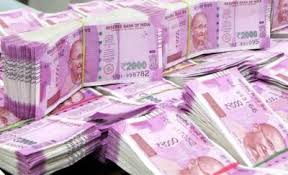Bengaluru, Apr 4: As calamity struck the nation in the form of coronavirus, many philanthropists have generously opened their wallets to sustain the urban poor, especially the migrant labourers in the city and elsewhere in Karnataka.
These individuals either directly or through organisations opened up their kitchens to ensure that no one goes to bed hungry in this distressing time.
The Bruhat Bengaluru Mahanagara Palike, the nodal agency to feed urban poor, responded positively to requests by these organisations and individuals to supply food to the needy on their behalf.
"We had been serving food through our Indira canteens, which we continue to do even now. However, many philanthropists and corporates have come forward to feed the needy," the BBMP joint commissioner Sarfaraz Khan told reporters.
According to BBMP, Indira canteens used to provide two lakh meals a day on normal occasions.
However, since the lockdown has been clamped, the number swelled by almost 50 per cent.
"On Thursday alone, we served 2.85 lakh food, which comprises breakfast, lunch and breakfast," a Palike officer said.
The major aid came from Jain International Trade Organisation (JITO) and Azim Premji Foundation.
While JITO is feeding around 22,000 people, Azim Premji Foundation is taking care of 20,000 people.
Sajjanraj Mehta, an office bearer of JITO, told reporters that his organisation has been providing packaged cooked food since March 27.
"We got in touch with Bengaluru Mayor M Gautham Kumar, Police Commissioner Bhaskar Rao and the BBMP commissioner B H Anil Kumar. According to their list, 27,000 food packets were required daily," Mehta told.
The JITO members have arranged vehicles of their respective businesses to transport food packets to different locations as part of the campaign named as 'COVID-19 manav seva'.
The organisation has also decided to utilise the kitchen of Princess Golf, a marriage hall on Palace Grounds here to prepare food.
Palike officials said on Thursday alone JITO supplied 53,000 meals.
"We asked them to cover migrant labourers in those areas where Indira Canteen could not reach. We mapped the cluster and provided them info. Now, they are distributing it there," they said.
Another organisation engaged in charitable work is ISKCON Bengaluru.
Ever since the lockdown, it has been working in various parts of India providing food to various people.
"We are providing materials such as rice, wheat flour, Daal, oil, vegetables with long shelf life, salt, sugar and spices. Each packet can sustain for at least 21 days," Madhu Pandit Dasa, president of ISKCON Bengaluru.
The organisation has set a target to cover at least two lakh people but so far it has reached out to 30,000 people including 25,000 in Bengaluru alone.
"We are feeding about 50,000 people in Delhi, with the Telangana government we are feeding about 40,000 people in Hyderabad, about 10,000 people in Ahmedabad in association with the Gujarat government," Dasa told.
According to BBMP, other organisations providing food to the needy are KMFY, TVS Group, Vimal Bhandari, Radisson Blue Atria Hotel, Hitech Ecowood, Mohammed Shajid, Prestige Group.
Wipro Ltd also pitched in to feed the poor by opening up its industrial kitchen infrastructure.
In a statement, Global Head- Operations of the company Hariprasad Hegde said the humanitarian crisis we are faced with as part of the Covid-19 crisis has multiple dimensions to it, of which the need to deliver cooked meals to the stranded migrant workers and other vulnerable communities is probably the most critical and immediate one.
Recognising this, Wipro has decided to use the industrial kitchen infrastructure in our facilities to provide cooked meals, he said.
This kicked off on April 2 with the delivery of 43,000 meals from our Bangalore facility in Kodathi to the government.
"We have made use of our own procurement logistics to source the food provisions. This is a collaborative process, with the government taking responsibility for the logistics of last mile delivery to the communities that need it the most,” he said.
In the case of Bangalore, the Karnataka government has come forward to provide this kind of complementary delivery support. We are reaching out to other state governments and local administrations for similar efforts." he said.
 The I-T department sleuths, who conducted the searches yesterday at the premises of the tea seller, recovered cash of Rs 1.45 crore, with new currency being at 1.05 crore, bullion worth Rs 1.49 crore, gold jewellery valued at Rs 4.92 crore, other ornaments worth Rs 1.39 crore and silver ingots priced at Rs 1.28 crore.
The I-T department sleuths, who conducted the searches yesterday at the premises of the tea seller, recovered cash of Rs 1.45 crore, with new currency being at 1.05 crore, bullion worth Rs 1.49 crore, gold jewellery valued at Rs 4.92 crore, other ornaments worth Rs 1.39 crore and silver ingots priced at Rs 1.28 crore.





Comments
Haha....how about gadda walas and votte topiwalas....and also black burqawalis who ran towards gold showrooms from 8th to 11th Nov ...
chaaiwaaala having so much lumpsome amount.. jus imagine...wat wud b d fate of doodhwaalas n shakkarwaaalaas in gujrath!!!! fakeeer log
Imported message
Again be alert, chai walas are most dangerous discussion makers, anything can happen
Why can not be the present PM.
Chaiwalas are very shrude, they run the country,
They amass the big fortune.
Gujjus are really very intellllllllllllllligent
Chaiwalas identity is hidden ......May be the Ex CM
Add new comment